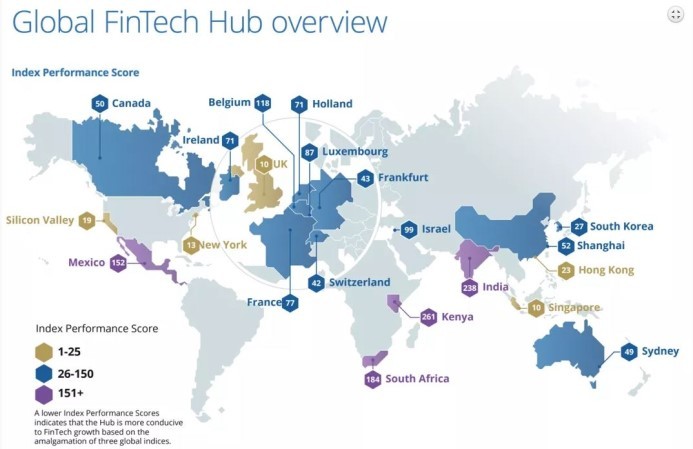A complete round- up of this week’s FinTech News

What’s Next For Fintech?

These are the boom years for Fintech. Between the years 2010 to 2016, investments in the Fintech sector jumped. From $1.8 Billion in Fintech investments in 2010 to an investment of $5.2 Billion in the first quarter of 2016 alone. Investments ranged from seed money for Fintech startups to takeovers by traditional banks, to banks’ internal research and development. But as technology in key areas mature, and as regulation across the world differentiates, a new era has begun to emerge. With that emergence, the landscape for Fintech could begin to change.
The growth in the Fintech sector has been exponential, but that has largely been the result of many years of under-development and a general absence of regulatory hurdles. That has left many other segments within the Fintech sector underdeveloped. Those areas include insur- ance, wealth management and corporate finance, which require a “friendly” regulatory envi- ronment. As a result, those sectors have seen much less innovation, but that, of course, leaves plenty of growth potential.
And this spells change for the industry in two significant ways. The first is the increased focus on new technologies. The second is that sector growth will concentrate in geographical areas of the globe where the regulatory environment is Fintech friendly.
The Frontier Technologies
What are the new frontier technologies that will push for the next hype in Fintech?
Robo Advisors: Robo Advisors are online investment services that assess a user’s risk profile and match it with a diversified and low-cost investment portfolio. Algorithms keep managing the investments to optimize returns and taxes.
Smart Contracts: Smart Contracts involves the use of Blockchain technology to validate, negotiate and enforce digital contracts from a distance. Those contracts could be for essentially anything, ranging from insurance policies and pensions to asset management con- tracts.
The Next Fintech Capital
There is a very good reason why innovation in asset management, insurance, corporate debt and many other segments of traditional finance have lagged. That is because these sectors are more tightly regulated. However, since those sectors are now in the forefront, more and more Fintech startups & vendors will begin to move into geographical areas with friendlier regulation.
London (deemed the world’s second largest Fintech hub after New York City) has a Fintech- friendly regulatory framework, under the Financial Conduct Authority (“FCA”). The Sandbox, which falls under the FCA’s innovation initiative, allows Fintech startups to develop and try out their innovative solutions without the typical burden of regulation. As often as needed, the Fintech startups can consult with the FCA on how best to adjust their projects to ensure compliance with regulation. At the same time, it allows the FCA regulators to adjust or tweak existing regulations in step with the developments in Fintech. Thus, an ideal environment for future growth in Fintech has been created, even in areas that have typically had greater regulatory oversight.
The Next Fintech Capital
So, where does it all lead? It leads to a very dramatic shift. As noted, London is second only to New York City in terms of Fintech friend- liness. However, if US financial regulations continues to weigh, the Fintech hub of New York City could and is quickly losing it’s standing to London where Fintech regulation is more friendly, innovative and hungry. And as for the industry’s focus? Like Storm IT Financials,
the very big shift in the Fintech sector is moving towards the trillions of funds under management in traditional banking and the Alter- native Investment industry of Hedge, Wealth & Asset Funds.

Storm IT Financial FinTech News & Trends picks: Week 27th Feb – 3rd Mar 2017
Amazon Web Services outage
AWS cloud storage back online after outage cripples network:
Amazon explains big AWS outage, says employee error took servers offline, promises changes
Amazon has released an explanation of the events that caused the big outage:
JPMorgan Software Does in Seconds What Took Lawyers 360,000 Hours
JPMorgan Chase & Co, a learning machine who are parsing financial deals that once kept legal teams busy for thousands of hours:
Microsoft Azure Blueprint supports the UK Government’s Cloud Securi- ty Principles
Microsoft is pleased to announce the release of Azure Blueprint for the UK Government’s Cloud Security Principles:
Serverless Computing Centers on Platform Approach Serverless computing gaining popularity:
https://solutionsreview.com/cloud-platforms/serverless-computing-centers-on-platform-approach/
What should CIOs expect from their managed cloud provider?
The CIO of 2017 undoubtedly needs to embrace the cloud:
Blockchain for banks is a “long way off” says influen- tial central banker
Blockchain fintech has a “long way to go” to satisfy financial regulators….:
http://www.cityam.com/259932/blockchain-banks-long-way-off-says-influential-central
UK and Canada Regulators Sign Agreement for FinTech Expansion
Regulators in the U.K. & Canada have sign agreement that will assist FinTech companies
https://www.cryptocoinsnews.com/uk-canada-regulators-sign-agreement-fintech-expansion/
Azure Stack to offer never-ending updates
Microsoft revealed Azure Stack, its forthcoming on-premises Azure-in-a-box effort:
Microsoft will provide the platform on which Caxton’s blockchain tech will operate
Caxton has selected Microsoft Azure to power its block-chain technology to provide more secure, robust bank- ing for customers:
When banks and fintech innovate together, consumers win
When banks & fintech companies collaborate, all par- ties come out ahead:
http://venturebeat.com/2017/02/28/when-banks-and-fintech-innovate-together-consumers-win/

